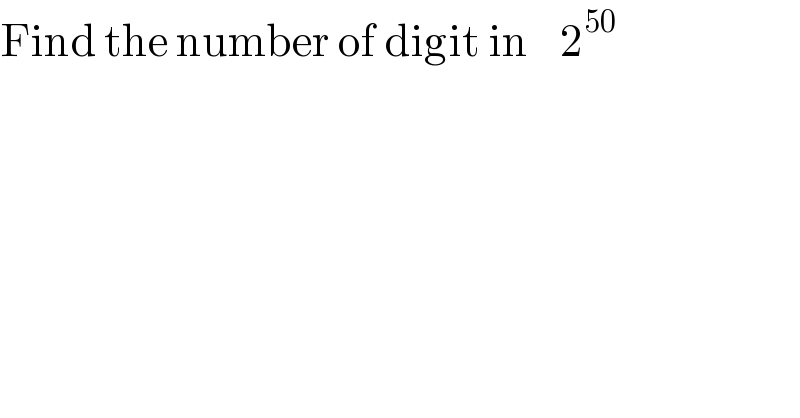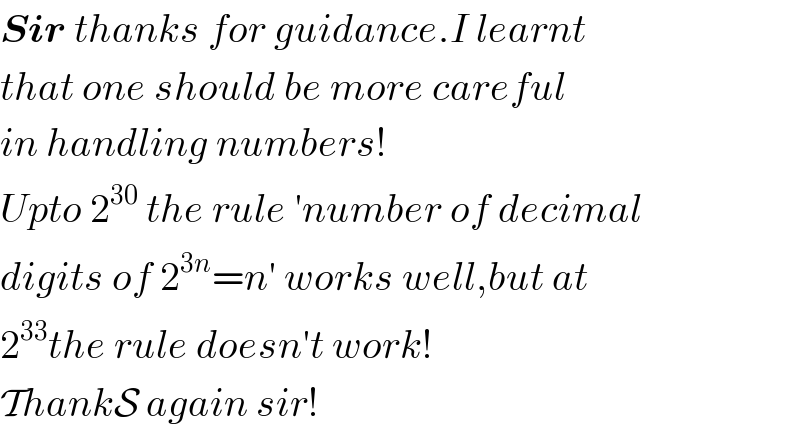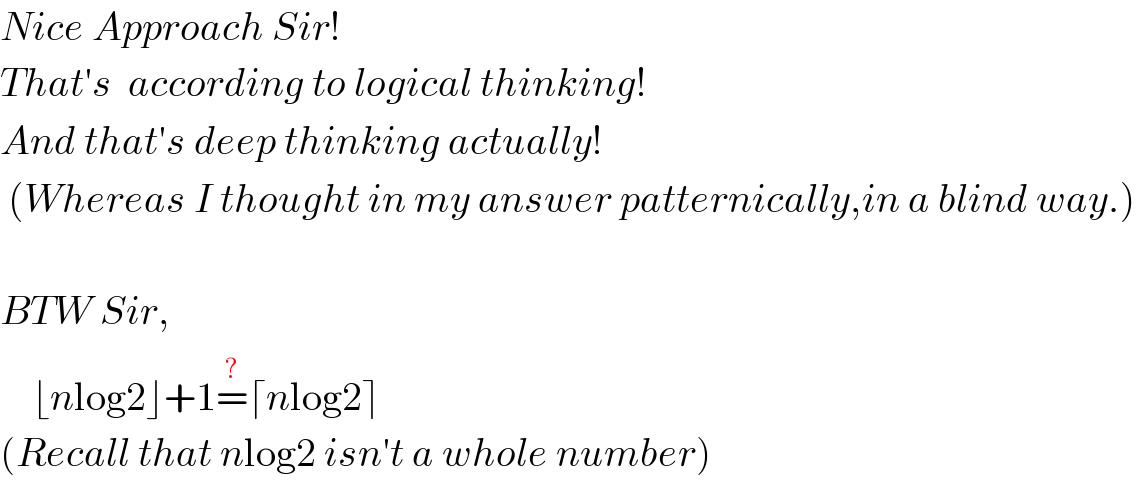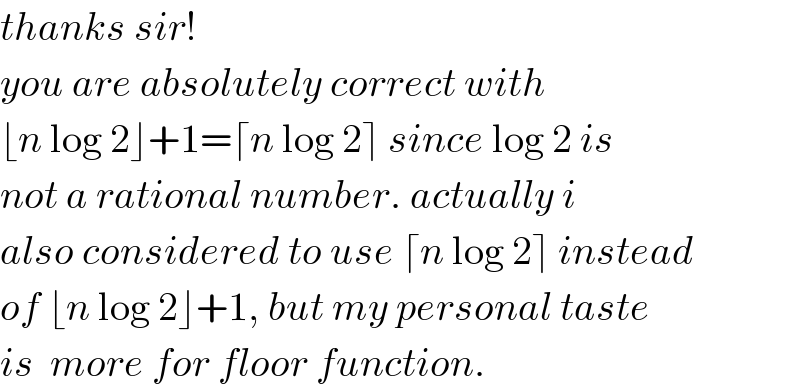
Question and Answers Forum
Question Number 62449 by Tawa1 last updated on 21/Jun/19

Commented by Tawa1 last updated on 21/Jun/19

Answered by Rasheed.Sindhi last updated on 21/Jun/19
![By experimenting below we can see that first three powers of 2 are 1-digit next three are 2-digit,after that next three are 3-digit numbers... [(2^m ,N,d),(2^1 ,2,1),(2^2 ,4,1),(2^3 ,8,1),(2^4 ,(16),2),(2^5 ,(32),2),(2^6 ,(64),2),(2^7 ,(128),3),(2^8 ,(256),3),(2^9 ,(512),3),(2^(10) ,(1024),4),((...),(...),(...)) ] We observe that: 2^(3n) have n digit 2^(3n−1) ,2^(3n−2) also have n digit Now, 2^(51) =2^(3×17) have 17 digits 2^(50) =2^(3×17−1) also have 17 digits](Q62461.png)
Commented by mr W last updated on 21/Jun/19

Commented by Rasheed.Sindhi last updated on 21/Jun/19

Commented by mr W last updated on 21/Jun/19

Answered by mr W last updated on 22/Jun/19

Commented by Rasheed.Sindhi last updated on 22/Jun/19

Commented by mr W last updated on 22/Jun/19

Commented by mr W last updated on 22/Jun/19

Commented by Rasheed.Sindhi last updated on 22/Jun/19
����✌
